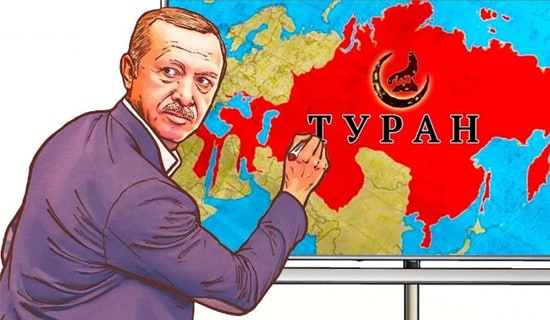On February 22, 2007, Egyptian blogger Abdelkareem Nabil Suleiman, known by his web-pseudonym Karim Amer, was sentenced by an Egyptian court to four years in prison for "disparaging religions" and "insulting President Mubarak." [1] In response, several columnists in the Egyptian press wrote critical articles, in which they denounced the curtailing of freedom of expression in Egypt and called to pass laws protecting the bloggers' rights.
The following are excerpts from three of the articles:
Egypt Does Not Respect Freedom of Expression
Columnist Salama Ahmad Salama wrote in the Egyptian government daily Al-Ahram: "In Egypt and in the Arab world [as a whole], we have significant difficulty in understanding and implementing one of the basic human rights, namely freedom of opinion and expression… Freedom of expression is the right to express an opinion or idea that is opposed to the opinions accepted by a certain sector of society, or to the opinion dominant in society [at large], no matter how [deeply] entrenched. This freedom is often curtailed, or [completely] suppressed, in countries taking their [first] steps in democracy, and in conservative societies in general.
"Countries with a tradition of openness protect freedom of expression in all its forms - freedom of speech, freedom of the press, freedom of belief and freedom to demonstrate peacefully. [In other words], this freedom is not only manifest in political discourse, but is also applied to artistic expression, religious [beliefs] and all forms of entertainment… especially in light of the media revolution and the expansion of the Internet, which have presented society with new challenges. It seems that we are unable to internalize this international [concept of] freedom of expression...
"If it was possible to pass laws stating that one cannot be imprisoned for [statements] published in the press… there is no choice but to apply the same principle to bloggers, to [statements] posted on the Internet, and also to what is broadcast on satellite TV channels. We must agree on established principles of freedom of expression, so that the government and religious institutions will not [be able to] control [people's] thinking and views." [2]
Blogs Have Become Tools for Influencing the Regime and Public Opinion
Another Al-Ahram columnist, 'Adel 'Abd Al-Sadeq, discussed the increasing impact of blogs on the political discourse, and the need to establish an institution to protect the bloggers' rights: "Thanks to their immensely wide distribution, blogs have become more than just a platform for [posting] news and analyses - the [bloggers] also follow the news, interpret them and respond to them… It is no longer possible for a restricted group of individuals to dictate public opinion, shape it and recruit it [for their purposes] - the blogs have [shattered] the monopoly on information that was [once] held by a few traditional players. Blogs constitute a new means for pressuring the government [regarding] its public policy and the transparency of its decisions… They have become a platform of political participation, and are used by people on the Internet to protest and to demonstrate against the government's policy…
"Blogs, just like the traditional press, must be subject [to the principles of] freedom of opinion and expression, since they [reflect] the extent of reform and democracy [in the country]… The arrest of bloggers, and their persecution by the security [apparatuses] reflect uncertainty on the part of the government regarding the concept of freedom.
"How can [the government decree that people] may not be imprisoned for publishing [an opinion] in the press, but at the same time persecute bloggers for publishing their opinions? Freedom is not a principle that can be applied [discriminately]. It cannot be upheld in one case and disregarded in another, [under the pretext of] protecting [national] security, and at the expense of [civil] liberties.
"Blogs constitute an alternative media platform, and are no different from the written press. Consequently, there should be an organization, a legal association or a syndicate to defend the bloggers' interests and publication rights." [3]
Opinions Cannot Be Locked Up Behind Bars
Journalist Diana Muqallid wrote in the daily Al-Sharq Al-Awsat: "[Karim Amer's arrest] was a climax in the bloggers' struggle against the government institutions and against other long-established institutions in the Arab region which persecute, arrest, torture and even execute [people]… In recent months, bloggers have suffered increasing persecution, arrests, and even imprisonment, as in the case of [Karim] Amer. [This came after] extremist and conservative circles expressed harsh criticism against the Internet and against its users in the Arab world. Their criticism rests on the simplistic assumption that the Internet is used only for entertainment and chatting, and as a platform for [displaying] licentious [materials]. Later, we began hearing the slogan that, in addition to all these faults, the Internet also constitutes a new weapon in the hands of extremist groups - which is, of course, true.
"Today, as the sector of Arab bloggers expands, they are expressing an ever-widening range of opinions, and are being emboldened. Due to their growing influence, there is increasing awareness of their role, as well as growing wariness and suspicion towards them. Bloggers have been instrumental in raising questions, issues, and topics that have never been presented as openly and publicly as they are now [presented] in the virtual domain. Until recently, groups with Islamist leanings controlled the number of [Arab] users and sites on the Internet. This reality has not yet changed dramatically, but we can definitely speak of new circles and of new activists, with more liberal leanings, who hold real debates on [various] issues [such as] freedoms, extremism, minority rights and women's rights…
"It is true that Karim Amer, and other [individuals] in Arab countries, are [still] behind bars or in danger of being arrested. However, the [freedom of] expression afforded by the immense virtual domain of the Internet cannot be [constrained and] placed in a dungeon. Karim's blog is still there for anyone who wants to visit it, and there is growing solidarity with him and with other bloggers - as reflected by the scope of the online campaigns that support them, and by the number of people who take part in these campaigns. In this era of the global village, opinions cannot be locked up behind bars of steel." [4]
Endnotes:
[1] See MEMRI Special Dispatch No. 1382, " Egyptian Blogger Abdelkareem Suleiman Arrested for Criticizing Al-Azhar Sheikhs: 'You Will End up in the Dustbin of History,'" December 7, 2006, Egyptian Blogger Abdelkareem Suleiman Arrested for Criticizing Al-Azhar Sheikhs: ‘You Will End up in the Dustbin of History’.
[2] Al-Ahram (Egypt), March 4, 2007.
[3] Al-Ahram (Egypt), March 5, 2007.
[4] Al-Sharq Al-Awsat (London), March 4, 2007.





